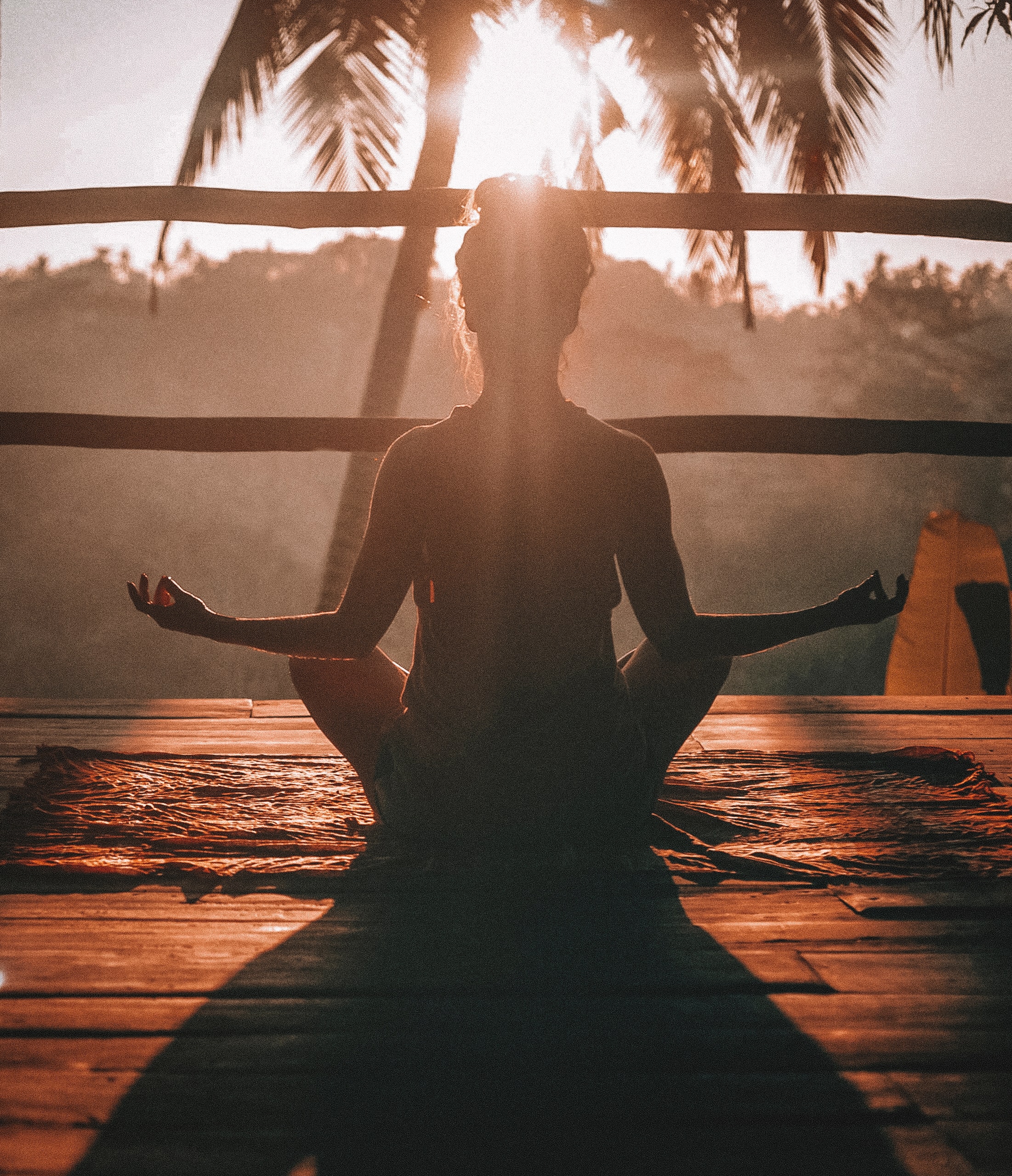Ancient ‘life manuals’ like the Kama Sutra might well be marvellously eccentric, slightly quirky and sometimes downright bonkers in parts.
But there are some absolute pearls of sexual wisdom mixed in amongst it all.
Before I attempt to pass on what I think are the best bits from three ideologies, I must point out I’m not even going to attempt to summarise the true spiritual meanings and intellectual theories behind each. (There are many great books/blogs and podcasts out there that will explain all in detail, if that’s what you’re after.)
But if you want a practical taster of what each offers in a bid to kerb our tendency to be anywhere but in the moment, you’re in the right place.
TANTRA
What is it?
It’s an eastern science that emerged out of a rebellion against current Hindu beliefs that suggested sex was a no-no if you wanted ‘spiritual enlightenment’.
It’s been around since the seventh century and honours the sacred union of the male and female energies that create life.
Shiva, the male Hindu god, is the embodiment of pure consciousness and Shakti, the female, is the embodiment of pure energy.
The basic principles Sex is slowed down. There’s gradual, controlled penetration, rather than the usual frenetic free-for-all. This enables women to use learnt techniques like tensing and flexing – a posh version of pelvic floor exercises. It’s not a myth that tantric sex can go on for one or two hours, by the way, but the jury’s still out on whether longer sex sessions lead to more enjoyable sex. Tantra also teaches you how to stay in the moment. If you’re the type to drift off while your partner’s still gamely plugging away, the ‘connecting’ exercises could be useful.
In the past, we were encouraged to lose ourselves in the experience: Tantra is all about staying fully aware and present. It’s way more ‘woke’ and definitely on trend.
Breathing exercises are designed to improve sexual tone, prolong intercourse and can help with premature ejaculation with men
Lessons to learn
- It encourages couples to stop being time or orgasm focused.
- It involves the heart as well as other parts
- There’s no place in Tantra for lovers to be selfish – it’s all about giving.
Not so sure
- Rituals are important. Some people love this aspect, others hate having to go through long, complicated processes just to get a bit
- Tantra often refers to mixing of body fluids (‘nectar’ or ‘love juices’). If you’re not having monogamous sex – or in the middle of a pandemic – mixing fluids is about as sensible as lying in the middle of a highway during peak hour. Safe sex and condoms aren’t figured in.
KAMA SUTRA
What is it?
It’s an ancient sex manual written between the third and fifth centuries.
There are actually seven books in total, though only the second is devoted purely to sex. (Worth wading through the others, however, if you’d like to know how to break into a harem or how to conduct an affair successfully!)
The Kama Sutra is much, much more than just acrobatic positions for intercourse though most modern interpretations focus almost exclusively on this. Ironically, the suspected author of the sex book (Vatsyayana) was a lifelong celibate.
The basic principles Some positions seem yoga-like because they’re designed to facilitate meditation as a couple. They’re also intended to allow you to have sex for one or two hours with minimal movement needed. During this time, you will exchange vital energies – or fall asleep.
Lessons to learn
- The manual recognised female orgasm in a time when others thought there was no such thing
- It recommends the man ensure she climaxes before he does
- Sexual boredom and monotony are seen as the reason why couples split. It was common in India for men to be encouraged to read the Kama Sutra before marrying. (If the West had enforced sex education, perhaps our affair and divorce rates would fall dramatically!)
Not so sure
- A man and woman live as one single body and soul. Independent types and commitment phobes would run screaming for the hills.
- Those two hour sessions…..Ok, we have time during lockdown but what happens when life gets busy again?
- Some of the positions require rubber limbs and plasticine penises
TAOSIM
What is it?
It’s a book written in the sixth century that talks about the yin (female) and the yan (male) and the flow of energy between them. This is called ch’i and it’s the same life force that flows in the human body.
Harmony is achieved by teaching people how to live within the flux of changing energy.
Basic principles Taoism recognised men can have multiple orgasms because orgasm and ejaculation are two separate processes. (Ejaculation is simply the series of contractions that pump the semen out, the feeling of orgasm happens in the brain.) It teaches men to orgasm without ejaculation through long, involved processes which train the brain and the body to separate the two.
There’s a focus on lots of foreplay and nine types of thrusting to try – the aim being to achieve 81 thrusts (one set of nine of each type)!
Lessons to learn
- It recognises that male desire is easier to ignite and quick to burn out, while females take longer but tend to last longer
- There’s an emphasis on slow, prolonged foreplay.
Not so sure
- Who’s going to keep count until you get to 81?
- Ejaculation is permitted only when necessary. Call my male friends old-fashioned, but none thought this was A Good Thing
- Separating orgasm from ejaculation is something I’ve read lots about, but I’ve never met a man who’s actually mastered it.
- One suggested method for stopping orgasm is for him to ‘gnash his teeth’. There is a reason why this never caught on.
 OTHER REASONS WHY YOU MIGHT LIKE SPIRITUAL SEX
OTHER REASONS WHY YOU MIGHT LIKE SPIRITUAL SEX
- Intimacy – high on the spiritual agenda – is something lots of women and some men crave. New research suggests it may be the magic ingredient for good lifelong sex.
- Lots of the soppy stuff (hands on hearts, breathing in time with each other) can make people feel safe and more secure.
- It’s creative and new – both score huge points!
- Couples are encouraged to live in the moment, take time out and watch stress levels.
- You’re taught to let go of body judgements. ‘Fat days’ don’t exist because you learn to love all of you.
- There’s an emphasis on self-exploration, learning about your body and how it works. The more you know, the better lovers you are.
- There’s no rush to orgasm and it’s not orgasm focused
- You’re told to make your bedroom a sacred space. Clean sheets and scented candles could make a nice change from dog-hair, coffee cup stains and toast crusts.
[/vc_column_text][/vc_column][/vc_row]





